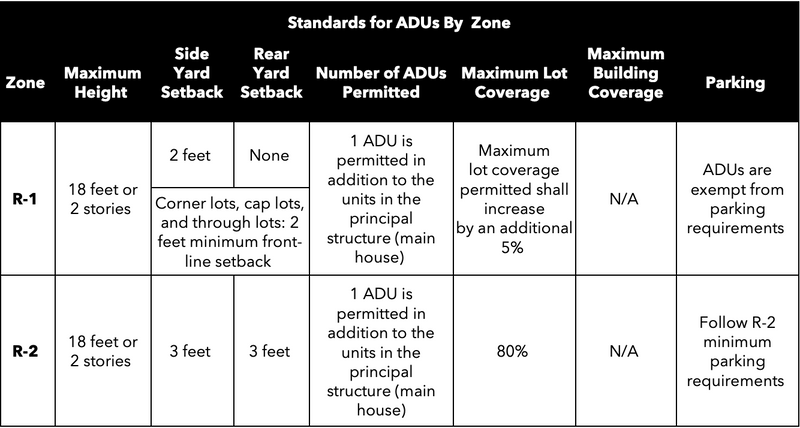

New ADU Laws in Jersey City: What Investors Need to Know

Written By: Dominic Rosato, NJ Real Estate Agent
Understanding ADUs in Jersey City: What They Are and Why They Matter
Jersey City’s recent approval of building ADU’s (Accessory Dwelling Units) has opened up new avenues for investors and homeowners alike. But what exactly is an ADU? Simply put, an ADU is a smaller, independent living space located on the same lot as a primary residence. The key feature of an ADU, as described by Jersey City, is that it is (almost) always a separate structure, detached from the main home. ADUs are a smart option for investors, particularly "house-hackers", looking to boost rental income and property value.
Can You Build an ADU on Your Property?
Not every property in Jersey City qualifies for an ADU. The first step is to check what zone your property falls into using the Zoning Map (Click Here for the Interactive Zoning Map). If your property is in the R-1, R-2, RH-1, or RH-2 zones, you are eligible to build an ADU. The purpose of this is to ensure that ADUs are built in areas that can support more housing units, while also protecting the residential character of the neighborhood.
What if You Already Have the Maximum Units in Your Main House?
One common question investors will have is whether they can still add an ADU if their house already has the maximum number of units allowed. The good news is, YES— you can add one ADU even if you’ve already maxed out the number of units on your property. You just need to make sure that it follows the building code outlined in the next few sections.
Design and Construction Requirements for ADUs

ADUs must meet specific design and construction standards. First and foremost, they must be detached from the main house, meaning you can’t simply convert a room or attached garage into an ADU. The detached structure is a crucial element of Jersey City’s ADU policy.
While there’s no strict limit on the size of an ADU, zoning regulations, such as setbacks (the distance between the ADU and property lines), height limits, and lot coverage rules, will dictate how large your ADU can be. For example, ADUs in Jersey City are limited to a maximum height of 18 feet or two stories, depending on the zone.
Parking and Access Rules for ADUs
One of the most attractive features of ADU construction in Jersey City is that ADUs are exempt from parking requirements, meaning you do not have to worry about creating new off-street parking for the unit. ADUs, like any residential unit, must meet safety standards, including fire codes and rules about unobstructed egress (the ability to exit the building safely in case of an emergency).

Converting a Garage into an ADU
If you already have a detached garage, you might be wondering if you can convert it into an ADU. The answer is YES— a detached garage can be converted following the same rules as building a new ADU. However, if the garage is attached to the main house, the process is a bit different. In **R-1 zones**, you can convert an attached garage into a residential unit, but you’ll need conditional approval from the Planning Board. That being said, the major turn-off to going this route is that off-street parking will become prohibited on your property, meaning you’ll need to remove any existing driveways or curb cuts (say goodbye to your driveway). Homeowners will also need to install new landscaping, including a street tree and possibly a knee wall planter if the front yard is 3 feet deep or more.
Safety and Distance Regulations
Building an ADU also comes with a set of safety requirements. The ADU must maintain a safe distance from the main house, complying with fire and safety codes. Additionally, the unit must have a clear and safe means of egress—this means every floor must have an unobstructed way to exit, leading to safe, open space at ground level. If you own a row house (attached on both sides with no direct access to the backyard), then an ADU will likely not be an option.
Why You Should Consider Building an ADU
If your property meets Jersey City’s building code requirements, building an ADU can be a great way to boost both property value AND rental income. Househackers, in particular, should be EXTREMELY eager to take advantage of these new laws. With the potential building costs ranging from $100k to $300k, you could generate an additional $2,000–$3,000+ per month in rental income.
I encourage you to reach out if you have any questions about purchasing a property with an ADU or investing in Northern NJ!
This article reflects my personal thoughts and opinions based on my research into the recent ADU laws enacted by Jersey City. It is not intended to be taken as fact and may have inaccuracies.


Comments